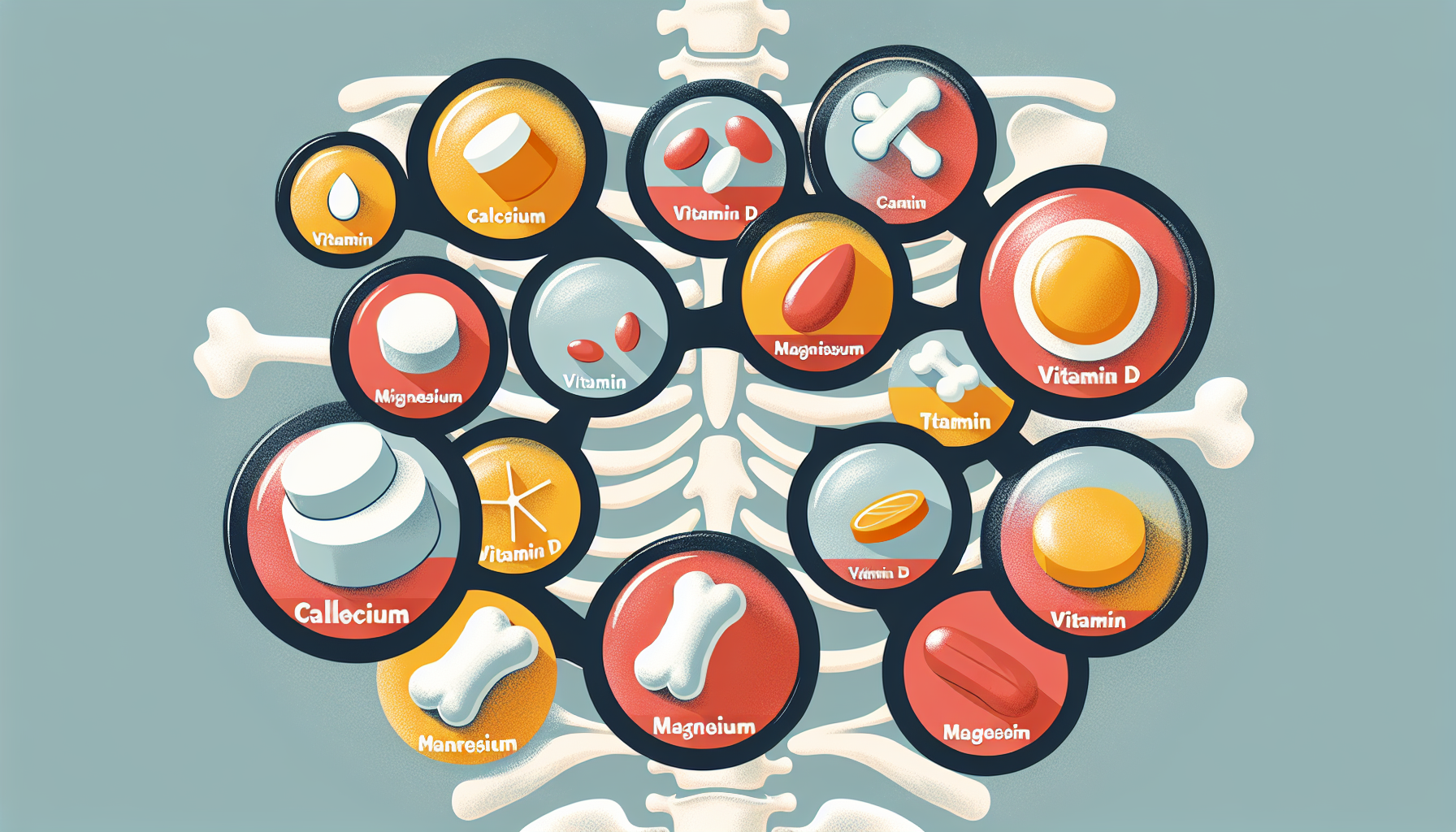Bone health is a critical aspect of overall well-being, often overshadowed by more prominent health concerns yet vital to our longevity and quality of life. The architecture of our bones is perpetually in a state of flux, delicately balanced by the processes of bone formation and resorption. It’s a dynamic equilibrium that can be tipped by numerous factors, including the intake of essential micronutrients. Understanding the role of these micronutrients in bone density enhancement can arm us with the knowledge to support our skeletal system effectively.
The Cornerstones of Bone Density: Calcium and Vitamin D
At the heart of bone health are calcium and vitamin D, the stalwarts of skeletal strength. Calcium serves as the primary building block for bone tissue, while vitamin D plays a crucial role in calcium absorption and bone growth. However, these nutrients do not work in isolation. Their efficacy is interlinked with the presence of other micronutrients that act in concert to optimize bone density.
For more in-depth information on bone health, visit our detailed guide.
The Supporting Cast: Magnesium, Zinc, and Vitamin K
Magnesium is a pivotal player in the bone health ensemble. It contributes to the structural development of bone and is required for the synthesis of DNA, RNA, and the antioxidant glutathione, which helps protect bones from damage. Zinc, another key performer, supports bone-building cells and promotes the formation of bone tissue. Vitamin K is essential for the proper regulation of calcium, ensuring it is deposited in the bones instead of the arteries.
The Role of Trace Elements: Boron, Silicon, and Manganese
Trace elements like boron, silicon, and manganese, while required in smaller amounts, are no less significant. Boron is linked to the effective metabolism of calcium, magnesium, and vitamin D. Silicon has been found to increase bone matrix and improve bone strength. Manganese is a co-factor in enzymes essential for bone formation and the maintenance of bone density.
The Impact of Diet and Lifestyle Choices
Diet and lifestyle choices have a profound influence on bone mass and health. For instance, a balanced diet rich in micronutrients is fundamental for maintaining bone strength. Exercise, particularly weight-bearing and muscle-strengthening activities, can also enhance bone density.
Other Nutrients to Consider: Omega-3s and Antioxidants
The role of omega-3 fatty acids in bone health is increasingly recognized. These essential fats are believed to reduce inflammation, which can help to slow down the rate of bone loss. Antioxidants, too, play a protective role in bone health. They combat oxidative stress, which can lead to bone weakening and increase the risk of fractures.
For a closer look at the benefits of omega-3s, explore their role in bone density and joint health.
Micronutrient Synergy: The Key to Effective Supplementation
When considering supplementation, it is essential to understand the synergy between micronutrients. Adequate levels of one can influence the absorption and efficacy of another. For example, magnesium enhances the bioavailability of calcium, and vitamin D is necessary for calcium absorption. Understanding these relationships can guide more effective supplementation strategies.
For insights on supplementation, explore our section on medication and supplements.
The Role of Micronutrients in Specific Populations
Certain populations are at a higher risk of micronutrient deficiencies and thus require special attention to their bone health. For example, postmenopausal women are at an increased risk for osteoporosis due to hormonal changes that can affect bone density. It’s crucial for such groups to ensure they are receiving adequate micronutrients to maintain bone strength.
Detailed information on this topic can be found in the article on hormonal changes and bone density.
Unconventional Wisdom: Emerging Research on Micronutrients
Emerging research continues to shed light on less known micronutrients that may play a role in bone health. For instance, recent studies suggest that inositol, a type of sugar related to glucose, may play a role in bone formation and health. Similarly, the amino acid lysine has been linked to increased calcium absorption and retention.
It is worth exploring these niche resources to understand the emerging micronutrients related to bone health:
Conclusion: A Holistic Approach to Bone Health
In conclusion, the contribution of micronutrients to bone density cannot be understated. A comprehensive approach that includes a balanced diet rich in these nutrients, along with an active lifestyle, can significantly enhance bone density and reduce the risk of osteoporosis and other bone-related conditions. As research evolves, so too does our understanding of the complex interplay between these micronutrients and our bone health. It is imperative for individuals to stay informed and proactive in their pursuit of optimal skeletal well-being.
For further reading on diet and exercise strategies to combat osteoporosis, take a look at the article on combating the risk of osteoporosis through diet and exercise.
By nurturing our bones with the right micronutrients and lifestyle choices, we lay down the foundation for a robust framework that will support us through the years.



